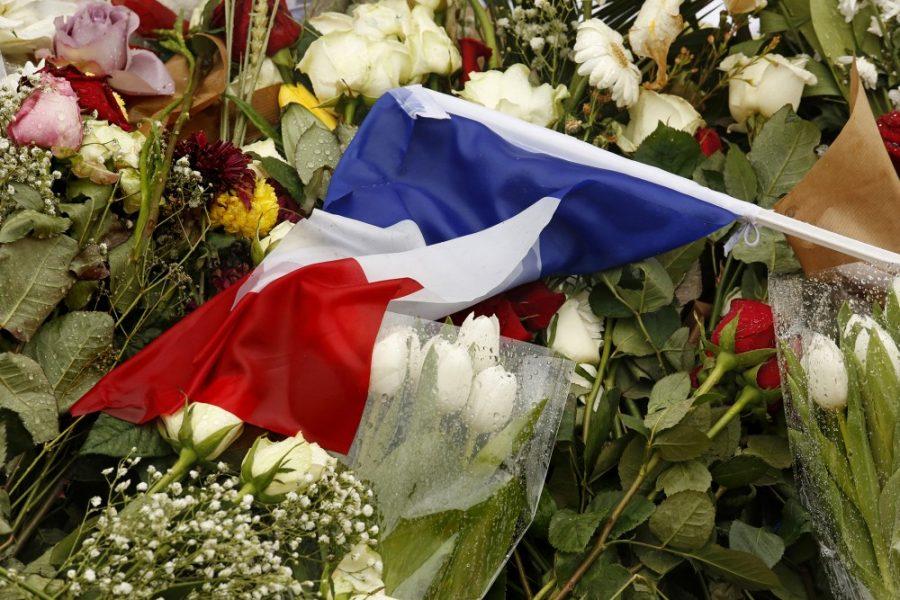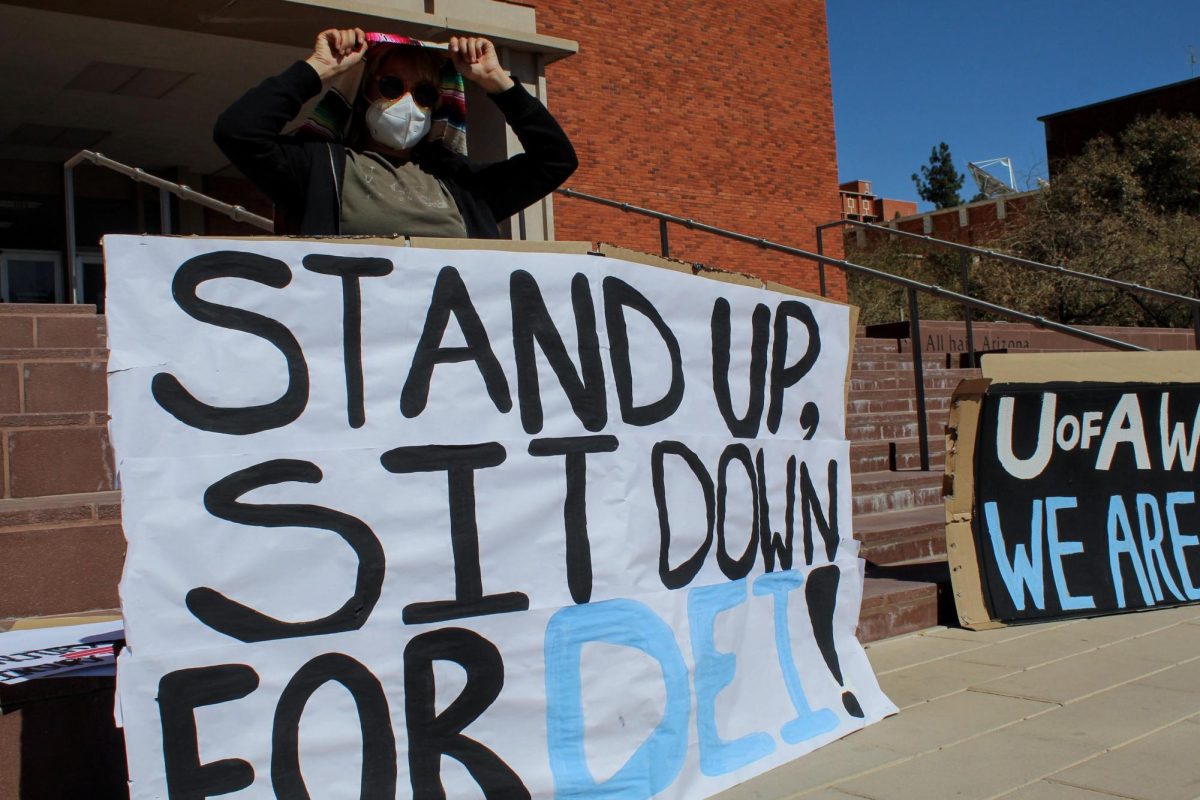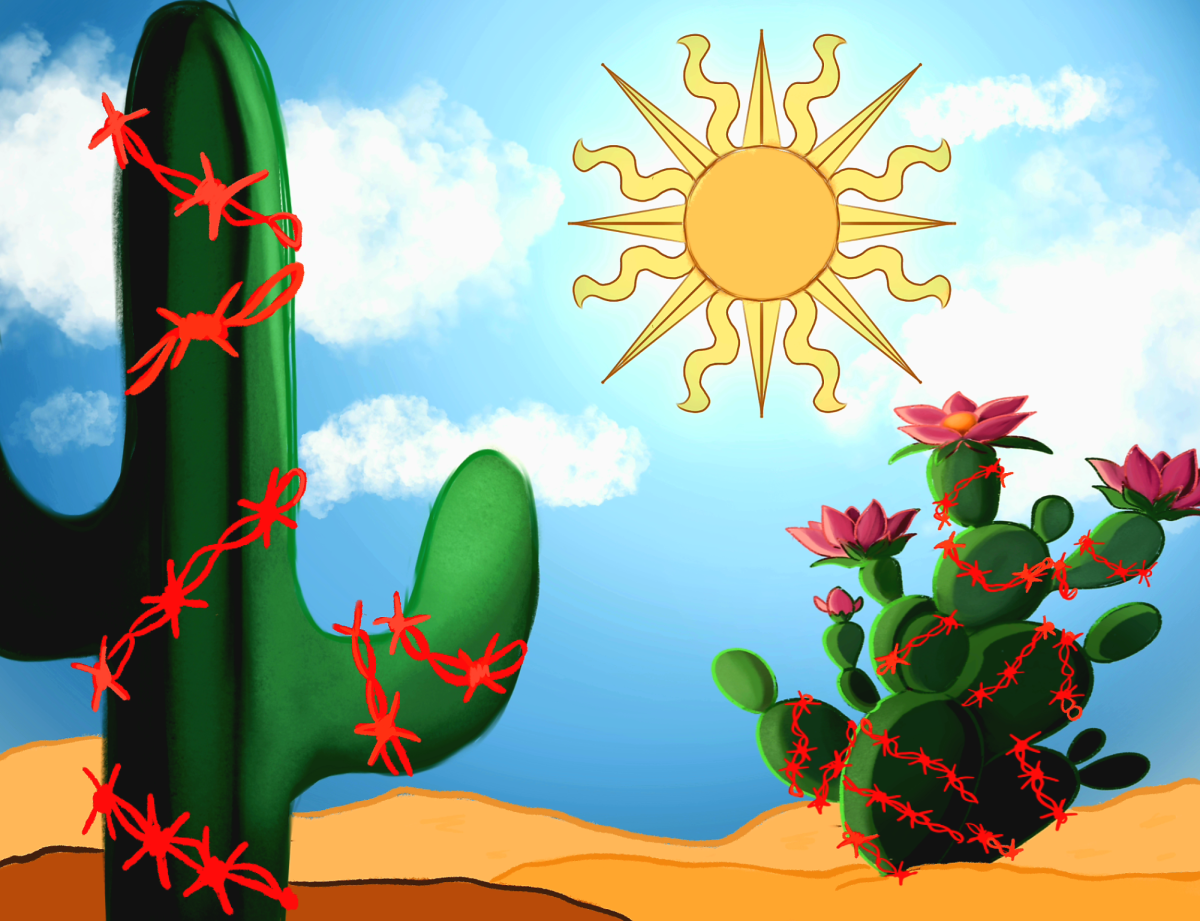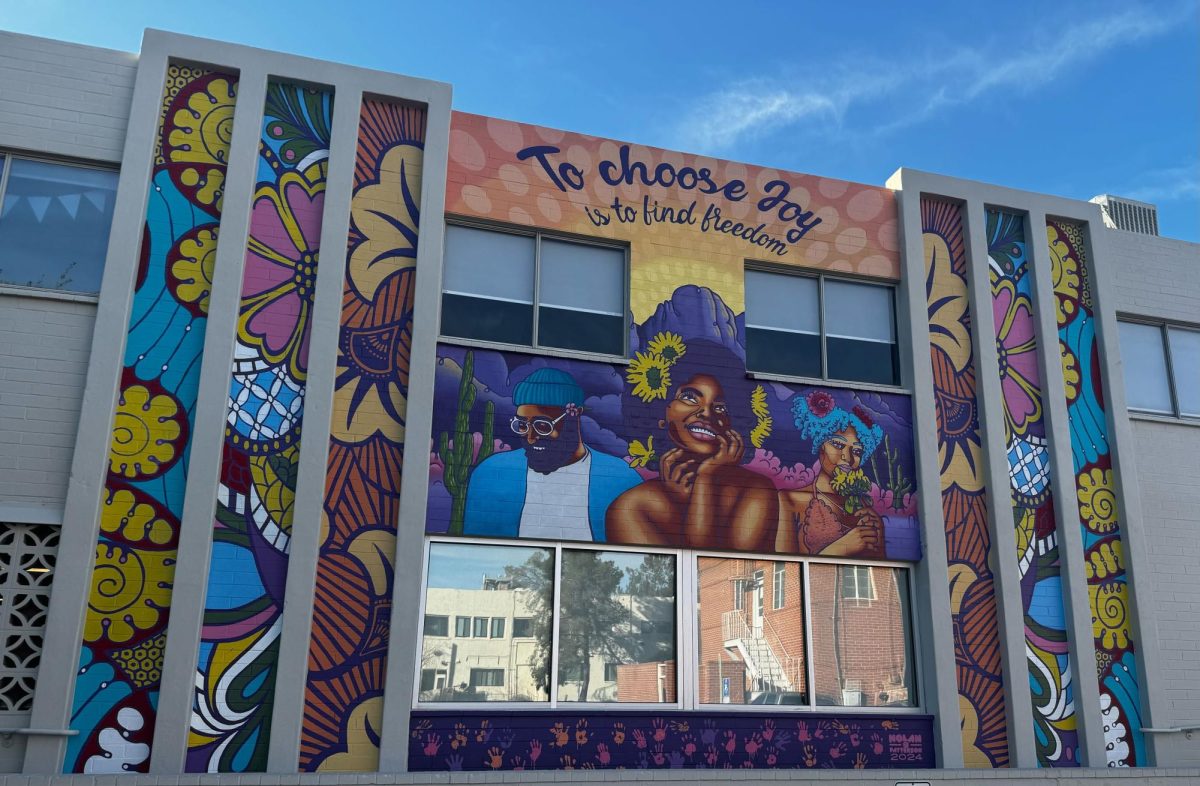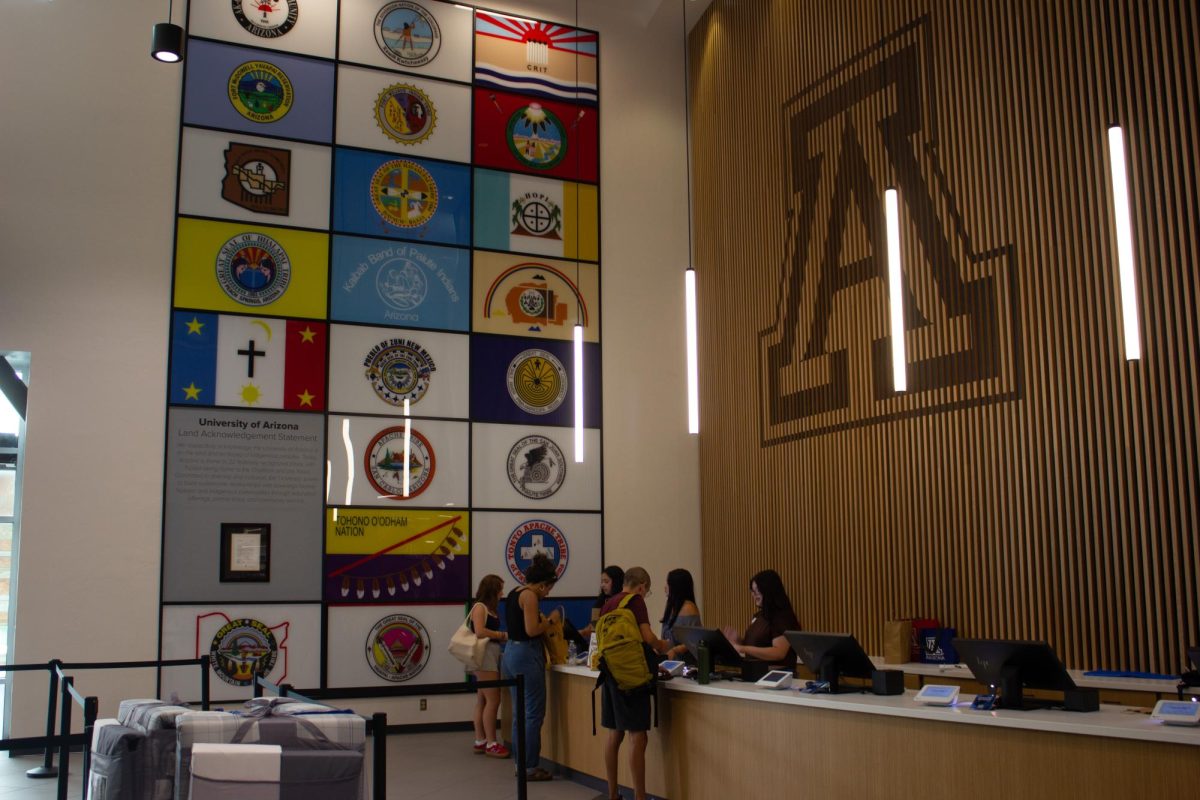Iyonna Zortman , a UA master’s student studying abroad in Paris, and her friend were riding the metro to a restaurant when she first caught wind of the terrorist attacks tearing through the city on Nov. 13.
Zortman received a message from another friend in the group they were going to meet, asking if they were okay; there had been a shooting at a nearby Cambodian restaurant close to La Place de la République.
“At the time, we still had no idea these shootings were terrorist attacks,” Zortman said. “We thought it was an isolated incident.”
As soon as Zortman and her friend found the restaurant, the owner asked them not to leave because they were on lockdown.
Zortman’s friends and family took to social media to reach out, flooding her phone with messages, asking if she was safe. Noticing that others in the restaurant were all on their phones, she decided to call her mom to find out if she knew anything about the situation.
Her mom told her the news: Just a 15 minute walk from their restaurant, at the Bataclan Theatre, a mass shooting had taken place.
Attackers stormed the theater during a performance by the American band, the Eagles of Death Metal, taking the audience hostage and eventually killing 89 people before French police had cleared the venue.
Zortman and her friend remained in the restaurant for an hour, discussing the situation until they were allowed to leave.
“Personally, I think the hardest part was thinking about the ‘what-ifs’ and knowing that we could have easily decided to go to one of the attack sites that night,” she said.
Zortman had lived with a host-family up the street from Le Petit Cambodge, one of the restaurants attacked. Another friend frequently walks along the street to get home from work, she said.
Zortman said in the days following the attack, the city was laden with somberness and mourning. She and her friend went to the attack sites, lit candles and paid their respects. Despite the sadness, she described a mood of “togetherness and solidarity” in the city and among the people.
Throughout Paris, security has been considerably ramped up. Zortman said she has been checked by security guards while doing simple things like grocery shopping.
Back in Tucson, UA faculty and students reevaluated the risks associated with studying abroad, especially in Paris.
Dr. Andrew C. Comrie, UA provost and senior vice president for Academic Affairs, cancelled the AFAS 499 field trip, that was set to leave for Paris, last Friday.
Comrie sent a letter to the students and professors participating in the program, explaining the reasons for the cancellation. He cited direct advice from the French Ministry of Education, which “advised foreign school groups to avoid travelling to France until after [Nov. 22].”
“These international opportunities are invaluable and extremely important to provide, but due to the current security situation in Paris and specific request to not send additional students into the city, we will not be able to move forward with this trip,” Comrie wrote.
The class, AFAS 499, includes a yearly study abroad trip that would have taken place on Nov. 20-29. The class spends a week following a tour that explores the black lives, art and culture, and their places in Parisian history.
The UA’s International Travel Safety Oversight Committee, commonly referred to as the ITSOC, was the group advising Comrie about the climate of the situation, and how to appropriately react to it.
But the members’ initial reactions to the attacks, like many others, were initially ones of consternation and solidarity.
“We immediately felt intense sympathy for the victims of the horrible attacks and great concern for the students,” said Jill Calderon, the program director of Latin American Project Development and a committee member of the ITSOC. “That’s why we acted on it so quickly; we just wanted to assure that everyone was OK.”
She said that the wealth of safety measures that were already in place were solid and dependable for the students currently abroad. These include an international risk analyst on the committee who is “constantly taking the pulse of what’s going on around the world and responding to things as soon as they happen,” a 24/7 hotline that students can call for emergencies and on-site staff if students need assistance.
“We haven’t heard from any parent who wants to bring their student home early before their program is over,” Calderon said.
Sydney Haliburton, a senior journalism and Africana studies double major, was one of the students set to go on the trip. Haliburton is a preceptor for the course, which she participated in last year.
After the attacks, Haliburton decided to cancel her travel plans.
“It’s a place in mourning because of the number of people passed,” Haliburton said. “[I asked myself], ‘Is it my place to go touring after all this happened?’ ”
She also said that the students’ parents forbade them to continue with the trip.
“Most everyone’s mom was the one who told them they couldn’t go,” she said.
One mother even threatened to cut off her son, a student who was adamant on getting on the plane to Paris despite his mother’s advice not to go.
“It certainly may affect their willingness to study abroad in the future,” Calderon said. “Though I have to say, we’ve always seen such a strong interest in studying abroad despite a lot of world events. I think there will always be an interest in students to study abroad.”
Zortman, on the other hand, has no intention of going back home.
“I have an inexplicable connection to this country, as many of my close friends and family know,” Zortman said. “I want to be here to experience this rare time in France’s history, and see Paris, and France as a whole, rise up and bounce back from this.”
Follow Andy Alvarado on Twitter.



